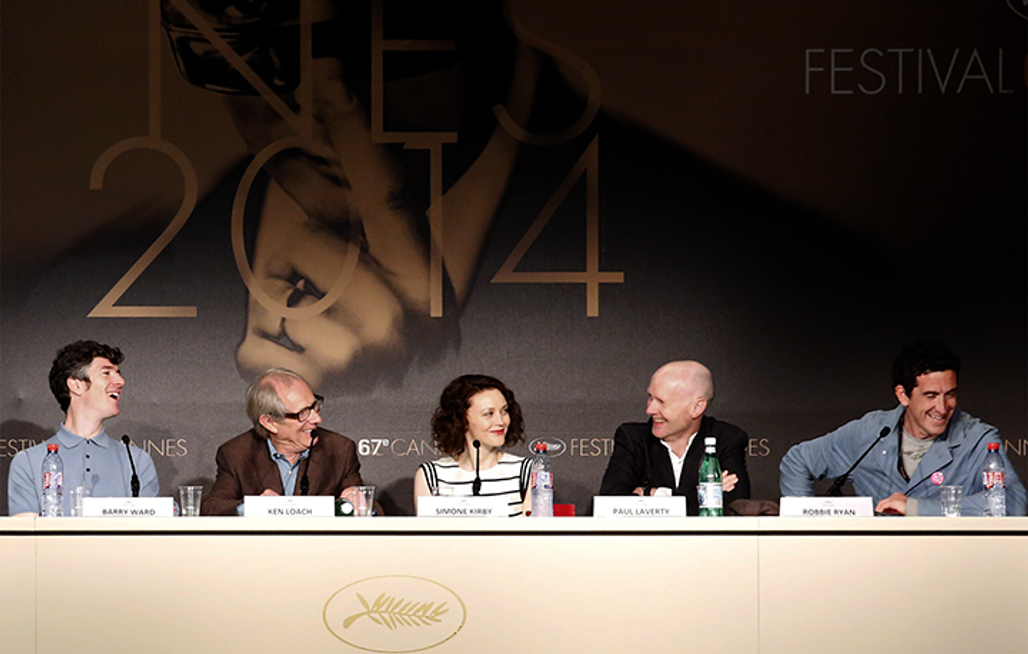
PRESS CONFERENCE- Ken Loach : “It’s difficult to completely stop making films”

Ken Loach was surrounded by the pillars of his team at the press conference for Jimmy’s Hall: Barry Ward and Simone Kirby representing the actors, the producer Rebecca O’Brien, screenplay writer Paul Laverty and chief cameraman Robbie Ryan. The 77-year-old British director was talkative and enthusiastic.
On the technical aspect and the difference between 35mm film and digital::
Ken Loach: “With 35mm film, which has to be cut, you pay more attention to what you’re doing, because it’s a much more human cooperation. 35mm film is something you can touch and see. It was very expensive to order new reels, so we asked the editors if they had something in their garage. The Pixar people found some!”
Robbie Ryan: “it’s a shame that things have changed so much. I hope the two systems could coexist but it’s hasn’t turned out that way.”
Paul Laverty: “People like traditional technology so we’re going to keep on cutting films.”
Rebecca O’Brien: “Jimmy’s Hall Is like the end of an era. The problem is that there is no more material, no more projection rooms in London!”
On the decor and the dance hall:
Ken Loach: “the dance hall is a key element. It was completely rebuilt and then we had to destroy it because it was burned down in a fire. It’s a place where people can express themselves clearly through sport, because Jimmy tries to support the poor. It’s a safe place that represents freedom of conscience!”
Rebecca O’Brien: “We built the dance hall in Glasgow and then be transported it and assembled it on site. We could never have done that without the support of the local community who wanted absolutely to be with us on this!”
On the character of Jimmy Gralton and the situation in Ireland today:
Ken Loach: “I think that the situation in Ireland is the same as for many European countries. We are all in the grip of neo-liberalism and if he was alive today, Jimmy would be attacking the big powers, the multinationals who control practically everything. That’s where the struggle has to take place. I think that if Jimmy existed, he would be part of that struggle. There is a common thread between the two eras in the joie de vivre of the young people in this region of Ireland: a lust for life which I hope we capture in the film.”
Paul Laverty: “There are many people like Jimmy Gralton, people trying to build bridges between men and women. This film is a tribute to ordinary people, who breathe life into their village.”
On the character of the priest:
Ken Loach: “We were very careful to make the priest who attacks Jimmy a dogmatic solid man. He’s against Jazz and he condemns Jimmy to hell. The ferocity of the church at the time should not be forgotten.”
Paul Laverty : “In the 1930s, the priests had a sort of magic power in Irish villages: there was something vicious about it.”
Selected highlights reported by Charlotte Pavard


